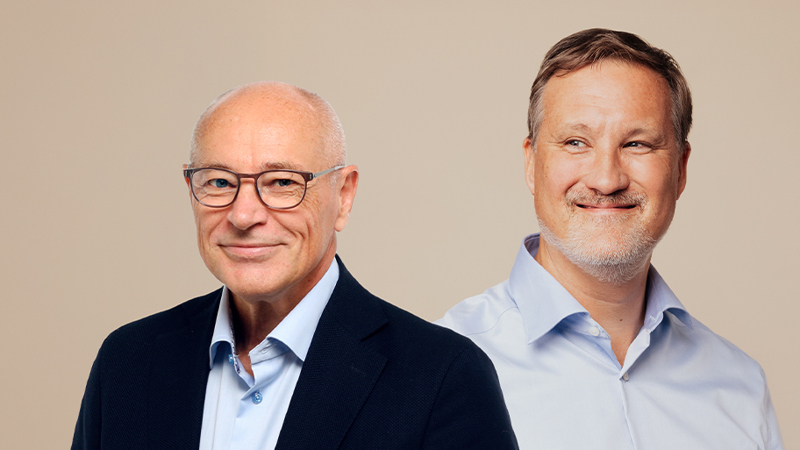What will occupational health look like in 2030?
Working life is in transition. Many forces challenge both employers and the workforce at the same time. Equally, occupational health must be actively developed in the direction of the future we wish for, so that we don't just drift along the flow.

The number of the working-age population is decreasing year by year, which means that many industrial sectors are already talking about a global labor shortage. At the same time, younger people are leaving the labor market for long periods of time or, in the worst case, have lost their ability to work permanently. Partly because of these factors, the requirements for work efficiency and productivity are constantly increasing. Digitization has been harnessed to help with a productivity leap, but it requires employees to learn, acquire new capabilities and adapt. In order to keep Finnish business activities competitive, we must keep our aging and decreasing population able to work and prevent young people from being excluded from working life at the beginning of their working careers. In order to succeed in this, occupational health and occupational health cooperation must change, because our current way of working will otherwise become unsustainable before long.
Prevention is the key
Already at the moment, the focus of occupational health is strongly directed towards preventative work, because it is much more effective and cost-effective for society, the employer and the individual to prevent accidents and diseases than to treat them. In the future, preventative work and work that maintains work ability will increasingly be at the center of occupational health, so that we succeed in keeping the population at work.
Illnesses that cause absenteeism cannot be completely avoided, but digital tools will increasingly be utilized in them, and in the case of self-healing illnesses, self-care instructions and self-care will also be used. Situations in which, according to the digital assessment, therapeutic encounters are needed are directed to healthcare professionals in a variety of ways. Medical care is produced in stages, whereby the assessment and treatment of an increasing number of illnesses is carried out by a nurse, occupational physiotherapist or occupational health psychologist.
While technology plays a greater role in simple tasks that require logical reasoning also outside the healthcare sector, more and more cognitive abilities are required in working life. In this case, the well-being of the mind becomes an important tool in terms of performance. In occupational health as well, assessment and management of psychosocial burden will form an increasingly large part of preventative work in the future.
More healthy years equals more productive years
Although the more traditional physical hazards of work decrease as work changes and occupational safety improves, the lack of physical activity increases the risks caused by passivity. Even now, alongside physically demanding work, there has been very strong physically under-straining work, and statistics show that the physical condition of the Finnish working-age population is weak. It is economically unsustainable if we use the time of healthcare professionals to treat diseases that could be prevented.
Occupational health should therefore invest in health-promoting services that increase each person's understanding of their own state of health and which health issues affect their ability to work. The services must also motivate people to take care of their own well-being and health, because the ability to work is affected in many ways by things beyond the workplace's and employers' influence. We need to support the supervisors who play a key role in practical performance management, not only in maintaining their own health and well-being, but also in the challenges related to their management work.
Organizational problem solving increases work ability
As the working population becomes more diverse, both in workplaces and in occupational health, it is necessary to be able to take into account each person's individual characteristics more strongly when supporting and evaluating work ability. Ability to work is not a yes/no choice, but in the future people with partial ability to work and their needs will be better understood. Work is seen more often as increasing and maintaining health, rather than as a source of burden. Staying in a career is also supported earlier and more abundantly with modified and substitute work.
Dynamic, rapidly changing operating environments and a diverse working population create complex entities that managers must take over. Since the goal is for both business and people to prosper and feel well, we cannot focus only on the well-being of individuals in occupational health either. The task of occupational health is to support both individual employees, the work community, the employer and supervisors in maintaining work ability. We believe that solving problems at the organizational level will play an increasingly important role when we also talk about supporting the work ability of individuals. Occupational health must act as a partner of organizations in the development of working life and workplace management and offer support on how to strengthen and improve organizational structures and management, so that it creates a good framework for work and people's well-being.
Occupational health vision 2030
In the future, as an occupational health partner, we will be able to enable more healthy and productive life years and support people to remain able to work, when we reform occupational health care as follows.
- We focus most of our occupational health work on prevention
- We increase the share of health promotion in the services
- We elevate the support and development of organizations to a new core process of occupational health
- We produce medical care in stages and in a targeted manner
- With digitization, we make both individual and company work more efficient
Read more blogs

Research result: Evaluating the effectiveness of healthcare requires sufficiently sensitive indicators
When developing healthcare, the focus is usually on effectiveness and measurable evidence. From the perspective of the individual patient, it is important to understand whether the treatment will bring them real benefits, rather than just more procedures. From the perspective of society, it is important to know where limited resources should be allocated.

Let's reform occupational health together
Laura Karotie, SVP Corporate Health at Terveystalo, shares her initial observations on how occupational health can be developed in a customer-oriented and sustainable manner.

Here are the digital trends in healthcare 2025: AI frees up time and supports quality of care
Ilari Richardt, Director of Digital Services at Terveystalo, highlights five major digital trends that will transform healthcare this year. At the heart of these trends is the potential of artificial intelligence to solve healthcare problems.

Good medicine requires the right tools
Medicine, like many other sciences, is advancing by leaps and bounds. The fact that medicine guides our work means that we deliver the most effective care as recommended. This requires us to constantly evolve and keep ahead of the scientific curve, so that we can act in the best interests of our customers, using all appropriate and possible means.

Occupational health psychologists are underutilized amidst the tsunami of mental health issues
The increase in psychological problems and burnout at work is constantly being discussed. Mental health disorders are one of the major causes of decreased work efficiency, absenteeism, and transition to disability pensions. One might ask why this situation persists, despite the fact that our country has a unique and highly regarded occupational health care system, with a large number of experts in the connection between work and mental health – us occupational health psychologists.

Where there is love for medicine, there is love for humanity
Hippocrates' wise words help us make the right choices. Our commitment to our mission, working for a healthier life, extends beyond the provision of quality health services to the promotion of human rights throughout our value chain.